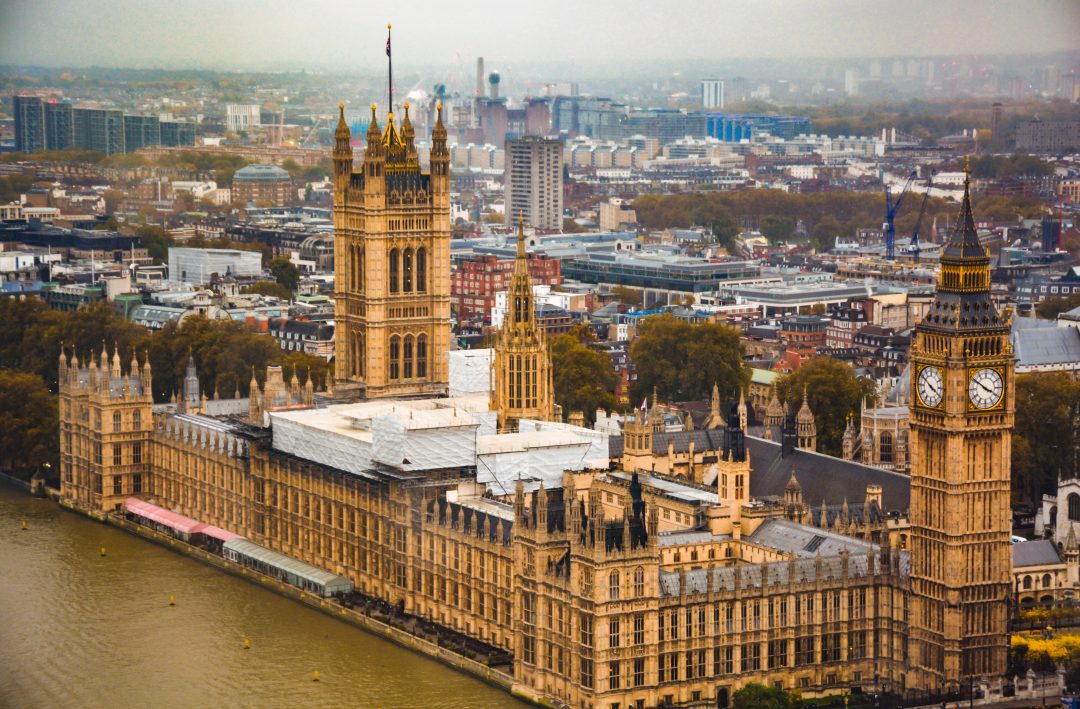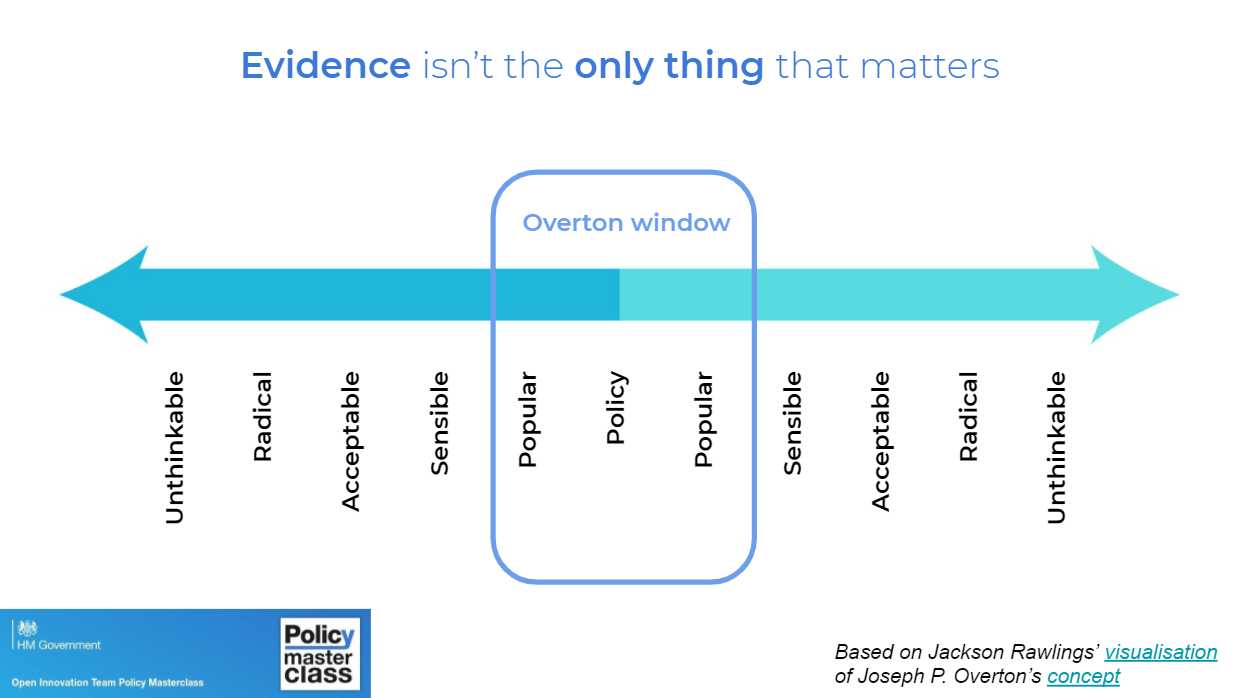‘Evidence isn’t all that matters’ – what we learnt about policy, and how to influence it.
Blog

Dr Mandy Cheetham (Northumbria University) and Dr Jenny Liddle (Newcastle University) are Research Fellows with the NIHR ARC North East and North Cumbria. They recently attended a Policy Masterclass run by the Open Innovation Team; a cross-government unit that works with academics and others to generate analysis and ideas for policy in the UK.
In this blog, they share what they learnt as well as their thoughts on where academics can start if they want to influence policy.
What we discovered:
• How the UK Government and Parliament are structured – we learnt there are 23 ministerial departments and more than 430,000 civil servants. Around 160,000 civil servants work on operational delivery alongside economists, social researchers, analysts, policy advisors, private secretaries… the list goes on! But people working on policy are the biggest specialist segment.
• Policymaking is rarely a clear, linear process – applying evidence is not just a case of making a submission to a Select Committee enquiry or government consultation.
• The policy making process is messy – it is affected by multiple objectives, legacy policies, political pressures, media scrutiny and staff turnover.
• People are as important as systems – get to know your target audiences and think about how you can tailor your influencing strategy to their needs.
• The Overton Window (which we describe below) highlights that evidence isn’t the only thing that influences policy making, and timing is key.
• Writing for a policy audience – we were all quite good at identifying the do’s and don’ts, so maybe it’s the operationalisation that’s difficult? We were reminded not to focus too much on methodology or rely on citations, as officials will very rarely have journal access.
• Building networks and relationships with policy makers – individual one-to-one relationships are really important.
Some practical top tips to help influence your policy area
• Map relevant departments, ministers, officials and other stakeholders, making an effort to understand their priorities and timelines
• Set up alerts for policy papers and consultations on Gov.uk and Westminster briefing emails e.g. Politico
• Search for select committees and APPGs on parliament.uk
• Team up with others and monitor an issue together
• Make offers explaining how you could collaborate or contribute
Discussing, debating and questioning
Our own areas of expertise include applied health research, neighbourhood planning, digital exclusion, and education. In the sessions, we discussed previous experiences of attempting to influence policy, debated the extent to which academics are good at writing for a policy audience, and questioned the existence of biases in terms of the regional origins of academic evidence that is adopted by policy makers.
Building profiles and networks
In terms of building networks, we discussed how academics’ university profile pages are important as online ‘shop windows’ to display your research interests and expertise. It might be a challenge to negotiate institutional protocols around how, and what, content is displayed on staff/student pages, but platforms like Twitter can be used to demonstrate your views and online interaction style.
Policy makers also use platforms such as the Universities Policy Engagement Network (UPEN) and Konfer to search for evidence and expertise.
Writing for policy makers – be clear and concrete
Two key takeaway messages on writing for policy makers were:
• Avoid a narrow focus on your own work – a more comprehensive approach is preferred
• Be really clear about what specific actions or decisions need to be taken by those developing policies.
Making recommendations about how our ideas and proposals might be applied may not always come easily to us working in academia. We can be hesitant to make bold policy statements when we know that evidence on a topic is not as good as it could be, or there are many nuanced factors involved. We’re good at identifying the gaps and questions, suggesting areas for further research, but policy makers want concrete proposals.
The Overton Window
Influencing policy can also involve thinking about where an issue sits in relation to the Overton Window.

Political viability depends on where ideas fall on the axis (unthinkable, radical, acceptable, sensible, or popular) at any given time. This inevitably raises the question of who and what determines which policies are considered politically ‘safe’.
What is the role of academia in shaping policy?
We had some interesting debates about policies where shifts have occurred over time, including women’s rights. If policy options available to politicians are shaped by ideas, social movements and shared norms and values in society, who ultimately determines the types of policies which are supported? What’s the role of academia, if any, in shifting the position of the Overton Window? How do we influence the voices which are amplified and go on to become widely accepted in society? If our role is to help frame the debate, challenge misinformation, change attitudes and present alternative socially valuable policy options, how does this sit with the notion of independent, impartial or objective research?
Interested in finding out more?
For anyone interested in reflecting on the complex inter-relationship between science, policy and politics, we recommend contacting the Open Innovation team at [email protected], or via their blog, Twitter @openinnovteam or on LinkedIn, and perhaps following it up by reading The Honest Broker by Roger Pielke.
View Dr Mandy Cheetham’s profile
View Dr Jenny Liddle’s profile
References and further reading
Mackinac Center for Public Policy The Overton Window of Political Possibility (accessed 15.2.21).
The Masterclass workshops were hosted by Newcastle University’s Open Lab and facilitated by members of the Open Innovation Team.